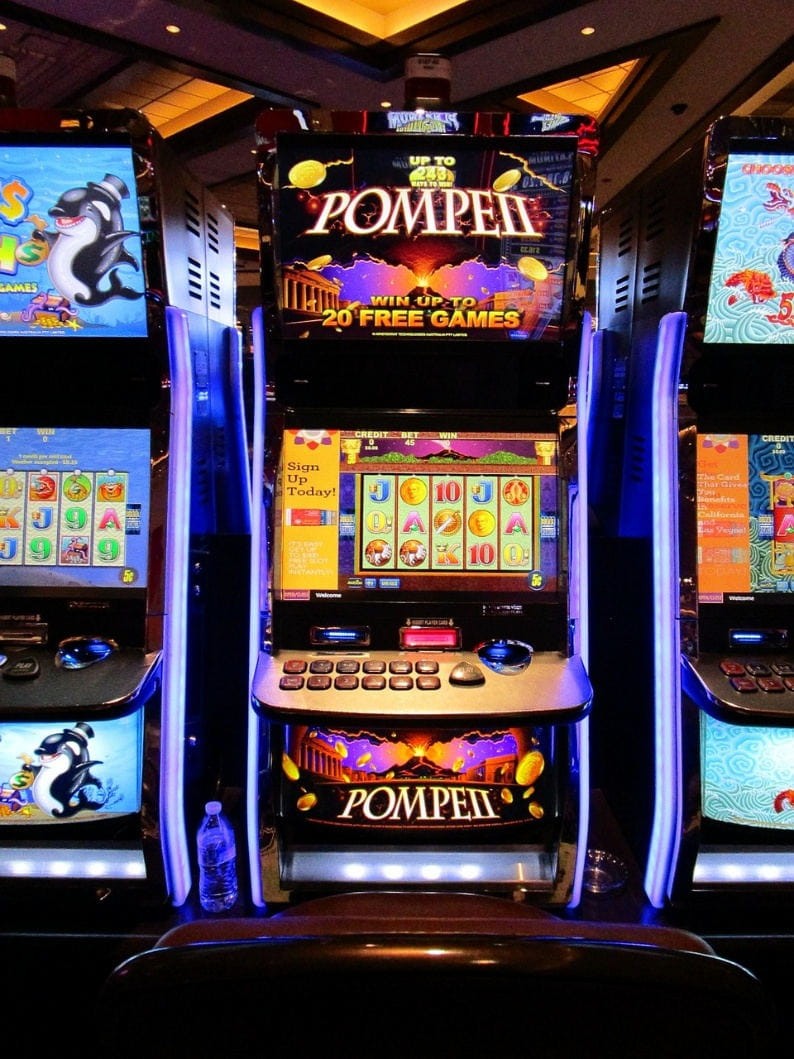
How Casino Games Have Evolved Over the Years
How Casino Games Have Evolved Over the Years
Casino games have evolved dramatically since the first metaphorical deck of cards was shuffled. Regardless of whether you're looking at the practices of our ancestors or modern digital platforms, this evolution has been shaped by many things, including cultural influences and changing societal norms. That's without even touching upon the technological revolution. But that will come in this piece as we take a journey through time to explore how casino games become what they are today.
Ancient Origins
Of course, gambling has been a part of human culture for thousands of years. One could even say that it's an essential part of the human experience, with nothing guaranteed and every decision we make have potential positive or negative consequences. Perhaps this is why it appealed to sophisticated civilizations like that of Egypt, Greece, and Rome. Archaeological evidence backs up theories that gambling was a popular pastime among citizens of those times.
In China, gambling has a long and rich history dating back to ancient times. The Chinese are credited with inventing playing cards around the 9th century, which later spread to other parts of the world and evolved into the modern deck we use today. Naturally, these early card games laid the foundation for many of the popular casino games we enjoy in modern times.
Medieval Period and Renaissance
During the Middle Ages, Europe caught the gambling bug, with unique games developing across different regions. It may not surprise you to learn that the Vikings, known for their adventurous spirit, were also avid gamblers. In particular, they enjoyed playing dice games and participating in contests of skill. Often, they would wager valuable possessions or even their freedom. According to IslandCasino.com, there has been found pieces of dice games after the Vikings.
The expansion of trade routes and the cultural exchange that followed led to new games and variations cropping up all over. This led to a gambling boom in the Renaissance era, particularly among the nobility. Around this time, card games became more sophisticated, with early versions of what would later becoming classic casino games emerging.
The Birth of Modern Casinos
The structure of modern casinos that we know today took shape as far back as the 17th century. Venice, that dramatic city built on the water, was the suitably cinematic setting for The Ridotto, which is often considered the world's first public gambling house. Established in 1638, it marked a shift from private gambling clubs to more accessible venues for the common man.
This shift triggered an evolution of casinos across Europe in the 18th and 19th centuries. Monte Carlo, a name every punter associates with luxury gambling, was established in the 1850s, with wealthy gamblers visiting from around the world.
The colonising ways of European settlers in the 1800s spread many things, including gambling traditions. This is how casino games were brough to the Americas and Australia. Even areas as remote as Iceland have a gambling history dating back to this period.
The Rise of American Casinos
When you think of countries famous for their casinos, the United States may spring to mind. That's because it played a crucial role in the evolution of casino games in the 19th and 20th century. As anyone who's ever watched a Western will know, the Wild West era has no shortage of saloons or gambling halls, where games like poker exploded in popularity - and sometimes gunfire.
Las Vegas emerged as a surprising gambling powerhouse in the mid-20th century. It went from being a small desert town to a glittering oasis of casinos. A dull light in a vast expanse to a bright glow of frenzy and activity that people associate with a good time. Many classic casino games were refined during this period.
Technological Revolution
The casino industry was transformed further in the late 20th century by the growing influence of computer technology. Video poker machines were introduced in the 1970s, paving the way for the digital revolution in gambling.
By the 1990s, people could enjoy their favourite games from the comfort of their own homes. Online casinos expanded the reach of the casino to a global audience, leading to the development of new, innovative game formats.
The mobile technology era took this a step further. Smartphone apps make casino games accessible anytime, anywhere. This change has led to a spike in casual gaming, with a broader demographic now aware of casino games.
Modern Innovations
The evolution will continue, of course. Modern casino games incorporate cutting-edge technology to make games even more immersive for players. The furthering reach of Virtual Reality (VR) and Augmented Reality (AR) blurs the lines between physical and digital gambling. And live dealer games are hugely popular with players who miss the authentic casino experience but don't want to sacrifice the convenience that comes with online play. All in all, the industry has come a long way since The Ridotto.
Related Article Archives
Related Articles
The Shift from RNG to Live Interactive Gaming Environments
Posted Feb 13th, 2026
How to Choose a Reputable Online Casino
Posted Feb 14th, 2026
Winna Casino Review What Players Should Know Before Signing Up
Posted Feb 17th, 2026
Sweepstakes Casinos: Why Players Are Choosing Social Gaming in 2026
Posted Feb 18th, 2026
Thrill Seekers vs. Strategists: Which Casino Games Match Your Personality
Posted Feb 18th, 2026
The Top 5 Slot Games Players Keep Coming Back to in 2026
Posted Feb 20th, 2026
Disclosure: This article contains sponsored content.






